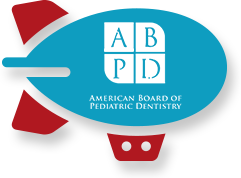Is Mouthwash Safe for My Child?
October 6th, 2017
Different types of mouthwash have different benefits like preventing tooth decay, reducing plaque, freshening breath, and reducing and preventing gingivitis. But with so many products on the market it can be hard to know what to look for in a mouthwash. Additionally, it’s tough to know which types of mouthwash are safe for your children to use. Never fear, parents! We’ve outlined some of the things you should look for when finding the right mouthwash for your child.
Consider Your Goals
First, you have to figure out what you want to accomplish by using mouthwash. Are you looking to clear up bad breath? Do you want to reduce tooth decay or alleviate mouth sores? If you know what you want to get from a mouthwash, then you’ll be better prepared to choose the right one for your child.
Look for Therapeutic Mouthwash
There are generally two types of mouthwashes available: cosmetic and therapeutic. Cosmetic mouthwash gives your mouth a clean, pleasant taste and reduces bad breath. However, cosmetic mouthwash treats the symptoms of bad breath, not the causes of the problem.
Therapeutic mouthwash helps treat tooth decay, prevent gingivitis and reduces plaque buildup. Therapeutic mouthwash may not freshen your breath as well as cosmetic mouthwash, but it will help fight the causes of bad breath.
Find Kid Friendly Mouthwash

There are a number of mouthwashes that are designed specifically for children. They are usually alcohol free, and feature popular children’s cartoons and come in flavors that kids enjoy like bubblegum, wild berry and grape. Mouthwash for kids is usually therapeutic, and helps prevent cavities. It usually contains no alcohol, and is easier on their mouth than cosmetic mouthwash.
Look for the ADA Seal of Approval
The American Dental Association – known as the ADA – tests oral products for effectiveness and safety. To attain the ADA seal of approval, a product must prove to be safe and effective. That’s why we suggest that you look for products with the ADA seal of approval. This will help you find a mouthwash that has been rigorously tested and approved by a legitimate association that advocates for oral health.
Mouthwash IS Safe for Your Child

Alcohol-free mouthwash is safe for children in small quantities. As a rule of thumb, mouthwash should not be used by children under the age of six. However, in some instances a pediatric dentist may prescribe mouthwash for a child beneath that age, but that usually only occurs in special cases.
Schedule an Appointment with Our Office
Our office helps parents teach their children about earning a healthy smile, and keeping it long after they leave our office. If you’re concerned about your child’s teeth, or they complain of sensitive teeth, then bring them into our office. We will evaluate their smiles and offer a variety of treatment options that fit their case. We will also show you ways to keep their teeth healthy at home.




